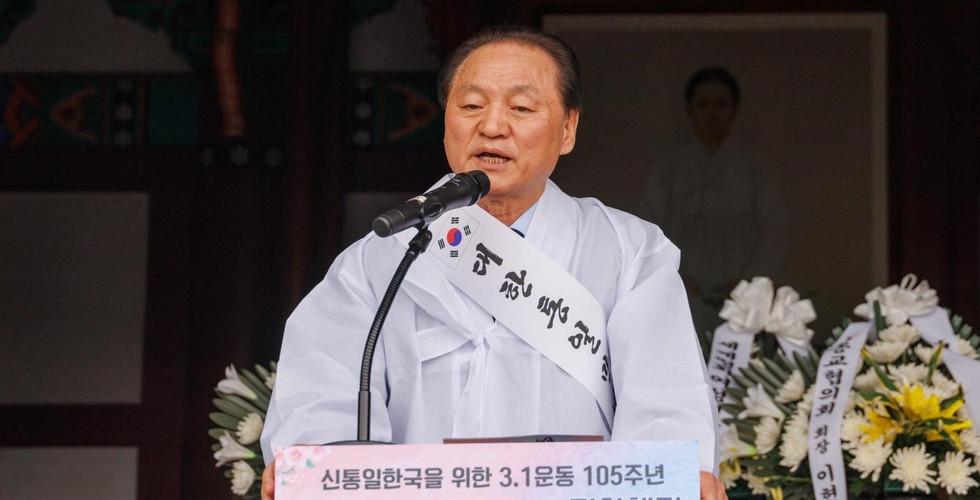Cheonan, South Korea – On April 6, 2024, some 300 participants gathered for an event to mark the 105th anniversary of the March 1st Movement, the 1919 protest that advocated Korean independence from Imperial Japan. The event was held in Byeongcheon-myeon, Cheonan, at the historic site dedicated to Yoo Gwan-sun, a 16-year-old girl who was arrested for pro-independence activities, and died in prison. The event was organized by the Korea Council of Religious Affairs, UPF-Korea, and the Women's Federation for World Peace.
Under the theme “Let's Build a New Reunified Korea through the Mansei Movement for Korean Unification,” the event consisted of a peace march, a prayer ceremony, a memorial performance, commemorative speeches, and a reading of the 1919 Declaration of Independence. It concluded with three cheers of Mansei, wishing long life for a new reunified Korea. Attendees included religious representatives, students, and multicultural families, among others.
Just as the March 1st Movement began as a united effort among religious communities that were oppressed under Japanese rule, this event brought together leaders from various religions, representing Protestant Christianity, Buddhism, Catholicism, Daesoon Jinrihoe, Unificationism, and Confucianism. In addition, many Korean-Japanese multicultural families participated in the event.
In his commemorative speech, UPF International President Chang-Shik Yang called on participants to build a new reunified Korea through this movement, and promised to continue holding various events to promote reunification.
"This event reminds us of the meaning of the March 1st Movement," said Hyun-Young Lee, president of the Council of Religious Affairs of Korea, "and we will continue to organize peace marches with the united religious community."
The Korea Council of Religious Affairs, co-organizer of the event, was founded in December 1965 to encourage dialogue among Buddhists, Confucianists, Won Buddhists, Cheondogyo followers, Catholics and Protestants. It was the first interfaith council in Korea to promote national social development and peace.
The purpose of the council is to review, discuss and implement practices among Korean religious people to contribute to the development of society and the nation, and to advance peace on the Korean Peninsula through interreligious harmony. It also aims to prevent interreligious disputes and conflicts by respecting the traditions of other religions, to promote fellowship among religious people, and to promote a new social climate through the sincere practice of a life of faith. In addition, every year the organization holds events to mark the March 1st Movement, as well as interfaith dialogues and international religious conferences to expand the social impact of religion.












